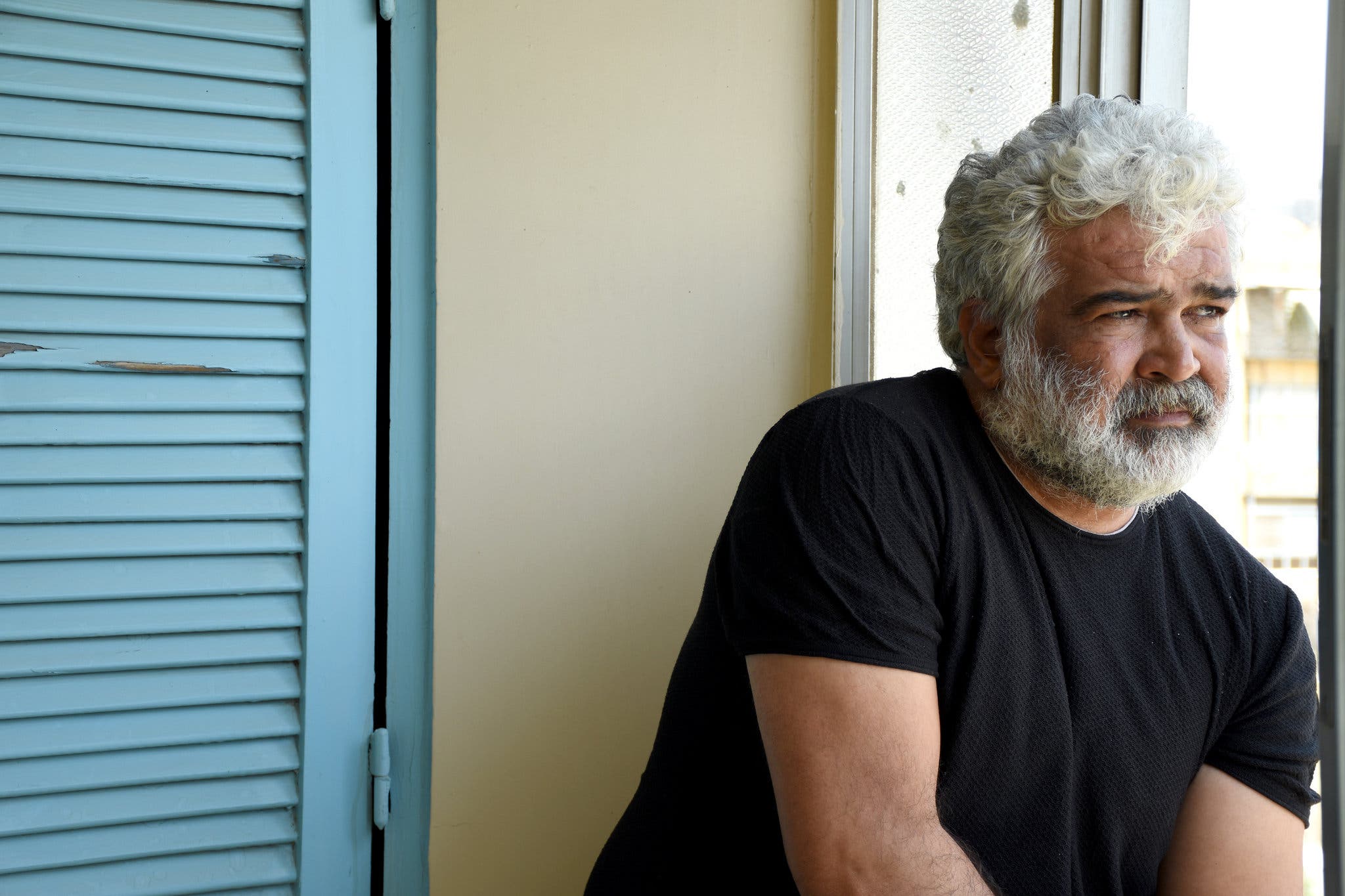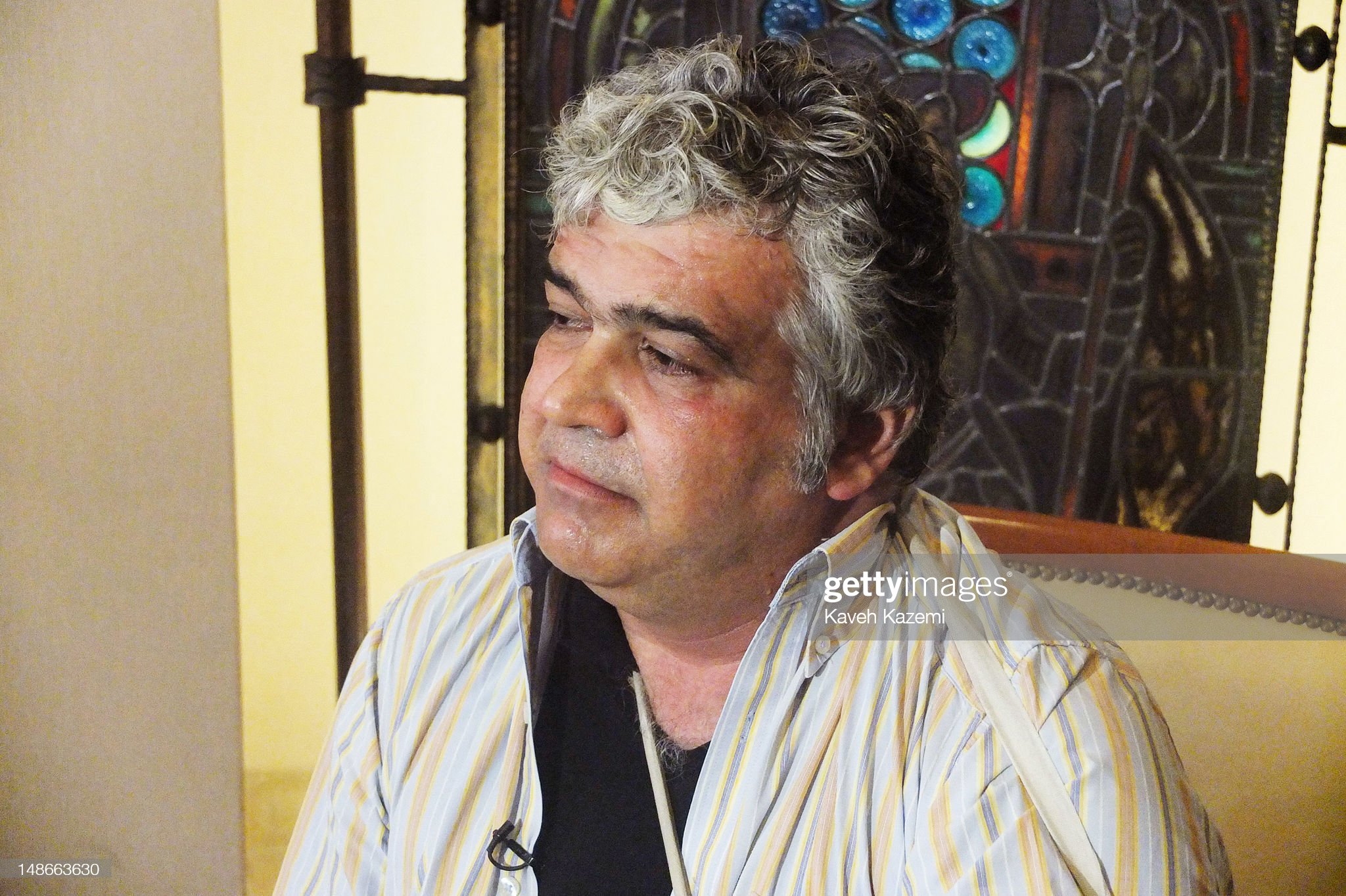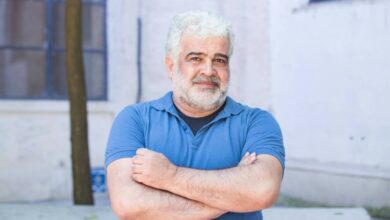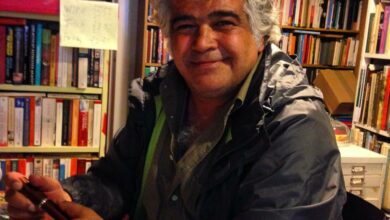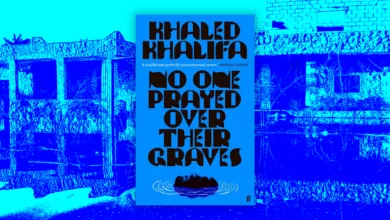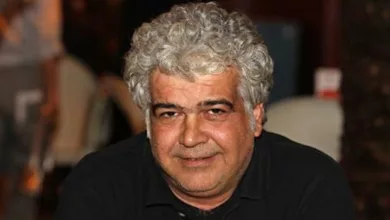Writer Khaled Khalifa, winner of the 2013 Naguib Mahfouz Medal for Literature devoted his speech to question the role of writing under the fierce crackdown in Syria and the role of Naguib Mahfouz, master of the Arabic novel
Ahram Online publishes the full speech of the Syrian writer and novelist, Khaled Khalifa, the winner of the 2013 Naguib Mahfouz Medal for Literature, granted by the American University in Cairo.
Khalifa, who is living under the fierce crackdown of the Syrian regime and witnessed the atrocities of Baath ruling party during the Assad the father and Assad the son, wrote his winning novel about the price that the Syrians paid under the rule of Baath Party. Khalifa couldn’t gain access to Egypt. Egyptian writer and Journalist, Sayed Mahmoud, received the prize and gave the speech on his behalf.
“For the first time I find writing encountering itself face to face to answer a dangerous question, what can writing do when death becomes so obscene to this extent? This is the first time I find myself wondering in a shock about the point of the writing.
I have to confess that my illusions about writing vanished when I discovered that we’re weak persons. To a huge extent that makes us unable to help a child in a refugee camp and bring him back to the warmth of his house, or help a man’s dead body that a sniper shot because he passed in the wrong place at the wrong time.
But writing made me see something I didn’t dare to see or confess of it before, which is that we work in a field of vulnerability because we make beauty, we contribute in making the human’s life less cruel and less alone. We don’t make the oppressed a victor but we help the oppressed to regain his powers and fight for his case.
We can’t persuade an abandoned woman that being isolated isn’t so bad to that extent but we can make her isolation less dreary.
We expose tyrannies, opportunists and killers but we’re not a court that issues sentences. Thus I see the novel changed my life; it made me less cruel and more precise in giving peremptory provisions that do not accept any discussions. In the novel everything is open to discussion, transformation and going back and forth between the strange possibilities. This is simply because it’s the record of man that is still repeating his questions of happiness, love, hatred and still pursuing his main question… and here I mean death.
The Arabic novel started to dig in the subject and the society abandoning the ordinary telling to a more profound narration and real prose with our Master, Naguib Mahfouz, who taught me the meaning of persistence, the meaning of writing and its pain as he taught generations before me. Those who will succeed us will learn many secrets from his texts.
Today, the Arabic novel stands on this ground, from which it will launch to be a partner in the wider human space, especially that the last decade has seen the beginning of a new era of the archaeology of the individual and speaking of the unspoken. The revolutions, which are still digging their ways will contribute in making the certain susceptible to questioning. Thus the society that has spent all these centuries looking for its identity will of course reach different results that will be shaking off the dust of a once great culture that was someday a real partner in the civilized humane culture and not only an echo and an consumer of the products of civilization.
Ladies and Gentlemen,
I didn’t imagine that will be here with the medal of our Master Naguib Mahfouz encircling around my neck as he encircled all the Arab novelists with his legacy.
Thanks to the judges’ panel.
Thanks for attending.
Thanks to the AUC, the sponsor of this prize.
Thanks to Cairo that will rise again and get back to its place as the mother that cares for its entire loved ones and I’m one of them.
Khaled Khalifa
Published on Ahram Online here



